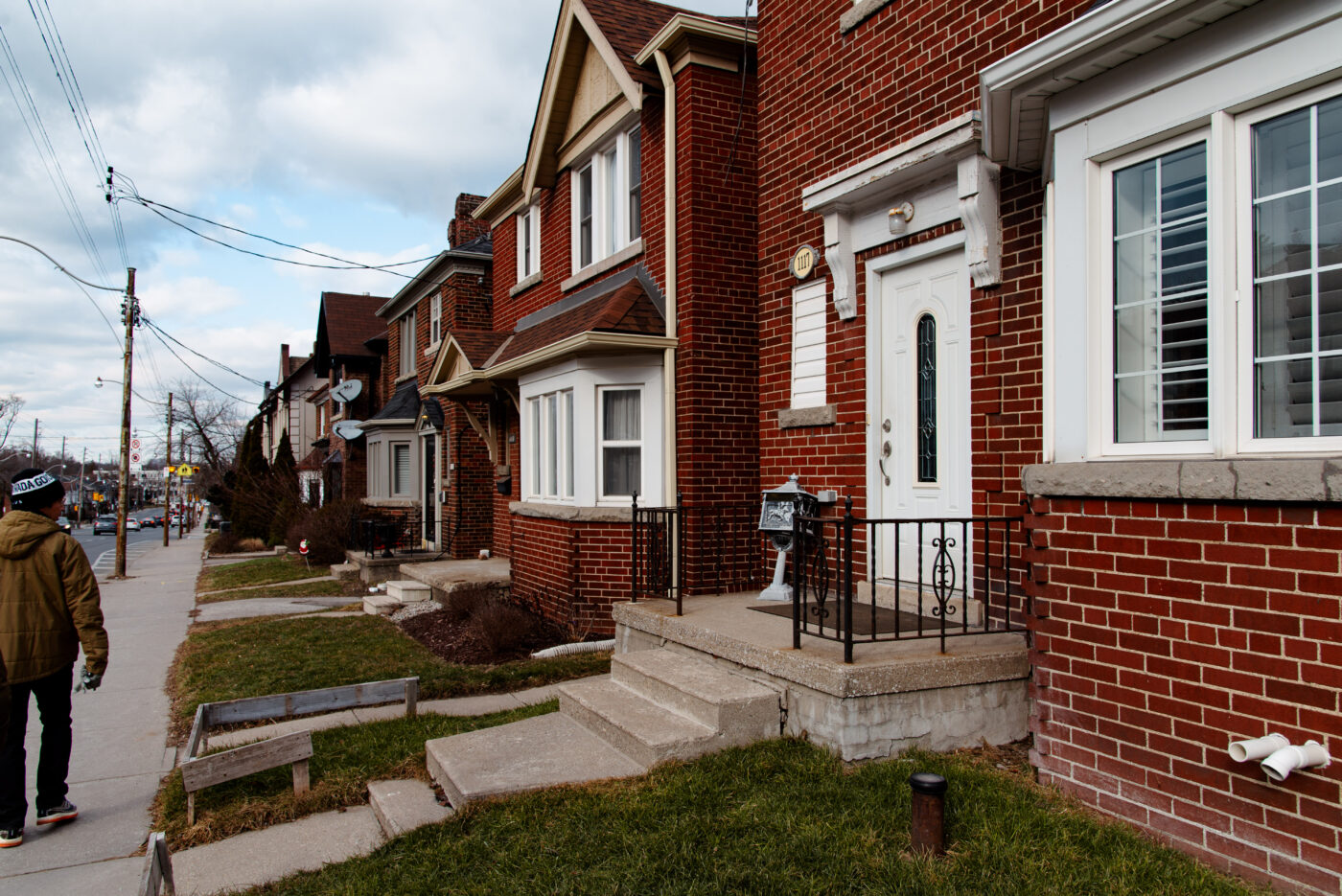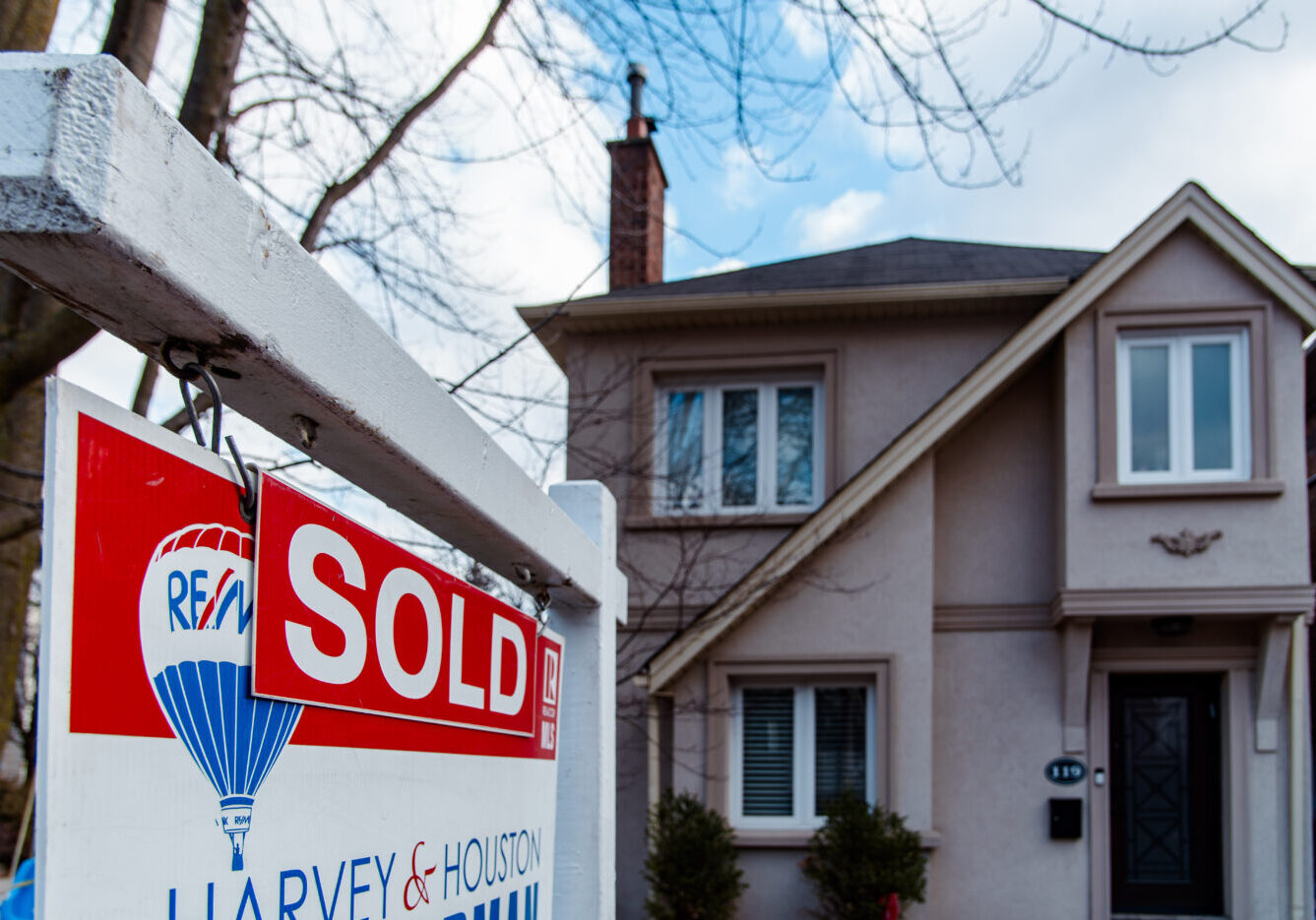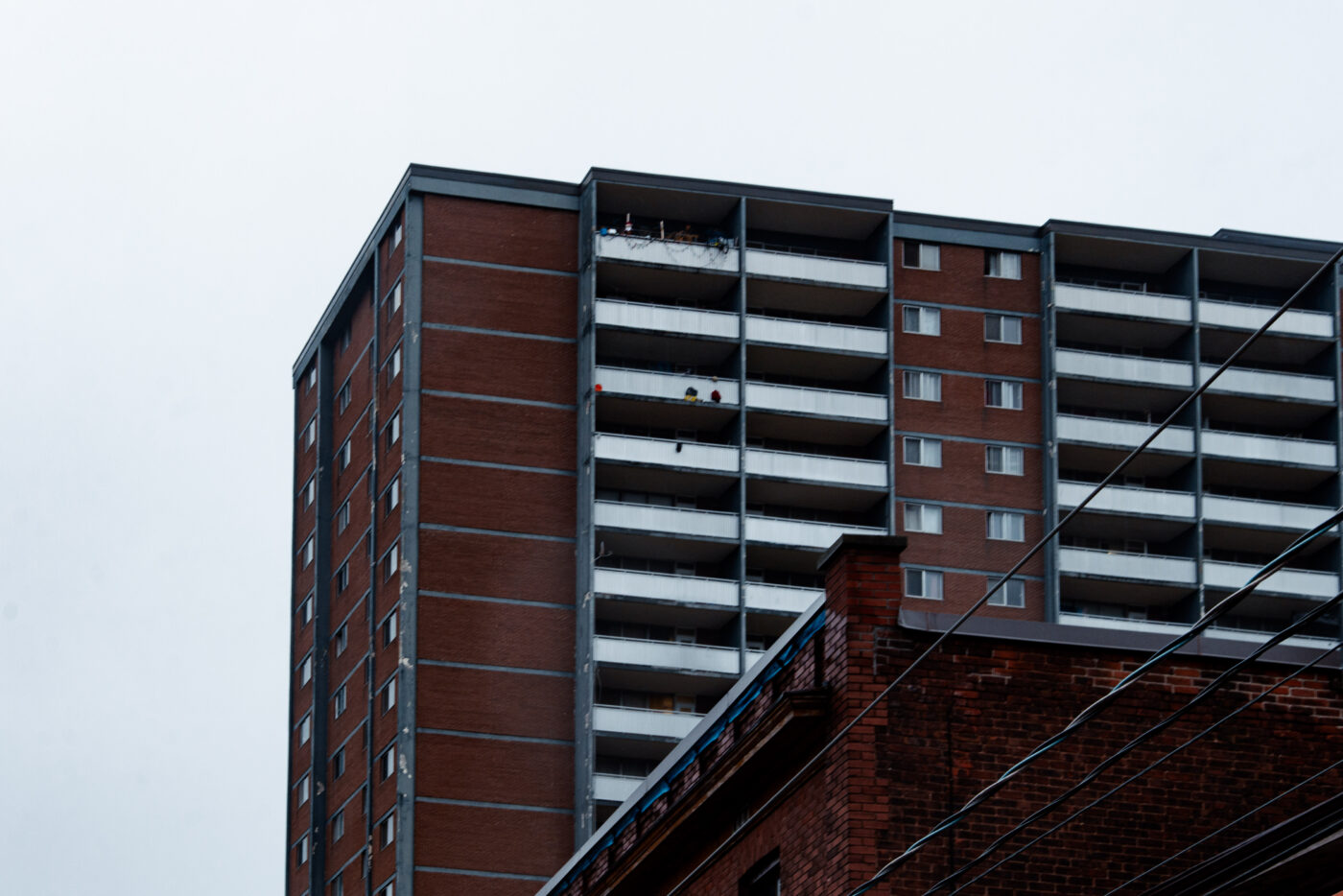THE GREEN LINE
ORIGINAL STORY
LESS THAN 1 IN 6 TORONTONIANS CAN AFFORD TO BUY A HOME IN THE CITY. WHAT ABOUT THE REST OF US?
Fifty years ago, the average Toronto home cost just over $50,000. Today, it's over $1.1 million.

THE MEDIAN INCOME EARNER IN TORONTO NOW NEEDS TO SAVE FOR MORE THAN 25 YEARS TO AFFORD A DOWN PAYMENT ON A HOUSE IN TORONTO, WHICH NOW AVERAGES AT AROUND $1.2 MILLION.
📸: Aloysius Wong/The Green Line.

ALOYSIUS WONG
Toronto Metropolitan University Master of Journalism graduate. Lives in North York where he prays that the Eglinton Crosstown will eventually be completed.
March 4, 2024
I’m 25 years old, and I may never own a home in Toronto.
At least, that’s what the math says.
Last year, the average selling price of a Toronto home was $1,126,604, according to the Toronto Regional Real Estate Board. But it cost half that at $566,611 just a decade ago, and two decades ago, the average cost was $315,231. Fifty years ago, in 1974, the price of a house was more than 20 times less compared to today at $52,806.
To put 2024 numbers into perspective, a Ratehub.ca analysis found that you’d need to earn over $200,000 a year to afford a home in Toronto. In an email to The Green Line, Statistics Canada wrote that only 15.5 per cent of households in the Toronto census metropolitan area earned $200,000 or more as of 2021. For individuals who earn that much, this number is under 10 per cent.
Simply put, for the overwhelming majority of Torontonians — that’s nearly 85 per cent or almost 5.5 million people across the GTA — owning a home in the city remains perpetually out of reach, whether that’s a condo or house. This reality is backed up by the banks as well: A February 2024 analysis by the National Bank of Canada reported that people who earn a median household income for Toronto — that’s $96,031 annually — would have to save for almost five years to afford a down payment on a condo unit and for more than 25 years on a house.
“It’s untenable,” said Erik C., 27, who currently rents with his girlfriend. “And then you're just stuck in a cycle of putting money into a pit that doesn't generate anything — money in somebody else's pocket.”
In other words, if I earned the average Toronto salary and saved 10 per cent a year starting today, I’d only be able to afford a 20 per cent down payment for a house here when I turn 50.

A HOUSE IS SOLD NEAR YONGE AND EGLINTON IN FEBRUARY 2024. ADJUSTING FOR INFLATION, THE AVERAGE HOME NOW COSTS FOUR TIMES MORE TODAY THAN IT DID 50 YEARS AGO.
📸: Aloysius Wong/The Green Line.
Yes, inflation has had an impact on everything. But even when adjusting historical home prices for inflation, the cost has more than quadrupled in the last 50 years.
This chart uses figures from the Toronto Regional Real Estate Board, adjusted for inflation, to show how much more expensive housing is today:
Renting isn’t much easier. A July 2023 report by the Canadian Centre for Policy Alternatives (CCPA) found that Torontonians need to earn over $40 an hour — or about $80,000 a year — in order for market rent for a two-bedroom apartment in the city to be affordable at 30 per cent of their income. The CCPA points out that this is more than double the provincial minimum wage at $16.55, which means many rental units in Toronto are still out of reach for two of the city’s lowest earners.
“At the individual and family level, you’re putting people in a very hard situation,” Ricardo Tranjan, the report’s co-author, said in an interview with The Green Line. “You're forcing them to commute long hours. You’re forcing them to sacrifice other basic needs. Or you’re just putting them at the very direct risk of becoming unhoused.”
Tranjan, a political economist and senior researcher with the CCPA whose research focuses particularly on rental housing and income supports, says these consequences will make Toronto less attractive to top talent. There will also be a negative impact on other sectors of the local economy, he adds, whether that’s pressure for businesses to provide higher wages to help employees make rent, or reduced purchasing power since people have less disposable income.
“There's this clear understanding that rentier activities just suck wealth out of the economy,” Tranjan explains.
This reality has driven housing to become the leading issue and cause for concern for Torontonians. Housing was the number-one issue in last year’s mayoral by-election, with 90 per cent of people surveyed by The Green Line indicating it as their top priority.
Want to know what Mayor Olivia Chow promised to do to fix Toronto's housing crisis? Check out her response to our mayoral candidates survey here.
There are a number of factors that have contributed to this systemic problem today. For one, many neighbourhoods here were historically zoned only for detached or semi-detached houses, which prevented the densification of most residential areas. The availability of affordable housing units is also shrinking, with the City of Toronto estimating that for every 15 affordable private units lost, one new unit is built.
What’s more, a February 2023 joint report by the Building Industry and Land Development Association and the Federation of Rental-housing Providers of Ontario found that 90 per cent of purpose-built rentals in the GTA were built more than 40 years ago, with 10 times fewer rental units built since 2000 than in the 1960s and ‘70s.

A RENTAL APARTMENT NEAR LAWRENCE AVE. W. AND WESTON RD. AS SEEN IN DECEMBER 2023. NINETY PER CENT OF PURPOSE-BUILT RENTALS IN THE GTA WERE BUILT MORE THAN 40 YEARS AGO, WITH 10 TIMES FEWER RENTAL UNITS BUILT SINCE 2000 THAN IN THE 1960S AND 1970S.
📸: ALOYSIUS WONG/THE GREEN LINE.
Some of this is changing. Last May, City Council voted to approve multiplexes of up to four units throughout the city as part of a strategy to address Toronto’s housing crisis.
Just last December, the federal government announced $471 million of funding would be allocated to the city to build around 12,000 new housing units over the next three years.
But with Toronto expected to grow by 700,000 people by 2051, we will be experiencing a housing crunch for years to come. To adapt, some are turning to alternative living arrangements to cope with the costs, including having roommates or trying co-housing. Ultimately, however, costs are still too high for many Torontonians, and more and more people are being forced to leave the GTA altogether to make ends meet.
For now, many in the city continue to fight to secure and afford shelter amid this economic storm, while Torontonians of all stripes ask: What, if anything, can get us out of the housing crisis?
Today’s stories lead to tomorrow’s solutions, so sign up for our newsletter to take action on the issues you learn about in The Green Line.
Fact-Check Yourself
Sources and
further reading
Don't take our word for it —
check our sources for yourself.
